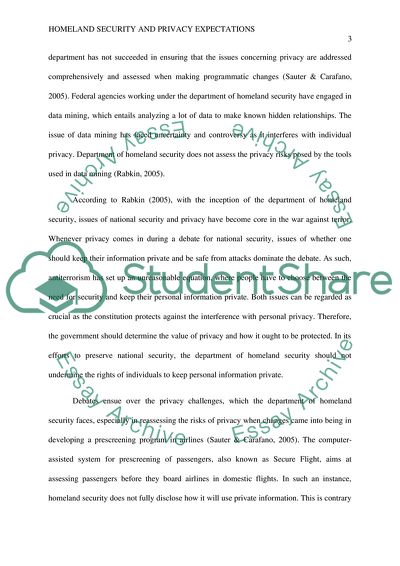Cite this document
(Homeland Security and Privacy Expectations Literature review Example | Topics and Well Written Essays - 1500 words, n.d.)
Homeland Security and Privacy Expectations Literature review Example | Topics and Well Written Essays - 1500 words. https://studentshare.org/politics/1776126-debate-between-the-needs-of-homeland-security-and-individual-privacy-expectations
Homeland Security and Privacy Expectations Literature review Example | Topics and Well Written Essays - 1500 words. https://studentshare.org/politics/1776126-debate-between-the-needs-of-homeland-security-and-individual-privacy-expectations
(Homeland Security and Privacy Expectations Literature Review Example | Topics and Well Written Essays - 1500 Words)
Homeland Security and Privacy Expectations Literature Review Example | Topics and Well Written Essays - 1500 Words. https://studentshare.org/politics/1776126-debate-between-the-needs-of-homeland-security-and-individual-privacy-expectations.
Homeland Security and Privacy Expectations Literature Review Example | Topics and Well Written Essays - 1500 Words. https://studentshare.org/politics/1776126-debate-between-the-needs-of-homeland-security-and-individual-privacy-expectations.
“Homeland Security and Privacy Expectations Literature Review Example | Topics and Well Written Essays - 1500 Words”. https://studentshare.org/politics/1776126-debate-between-the-needs-of-homeland-security-and-individual-privacy-expectations.


